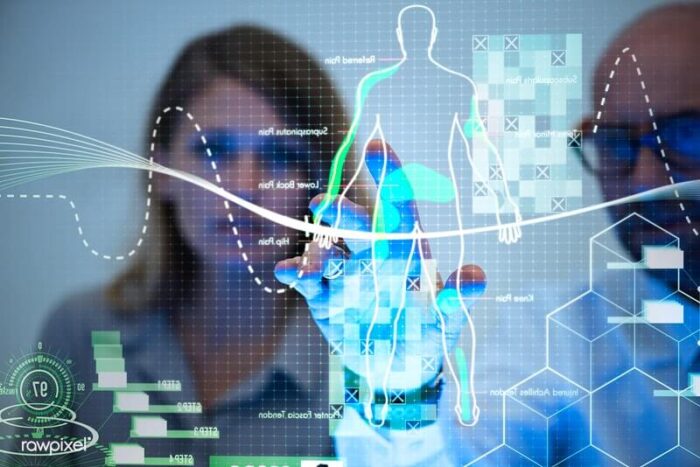The healthcare industry is gearing up for the implementation of AI in 2020; revolutionizing the way in which they deliver care. The healthcare industry was gearing up for a decade long wait, starting 2018, to see real-life impacts of AI, however, the research has so rapidly advanced that the 10 year long dream is materializing now!
A panelist of 12 coined the “Disruptive Dozen”, at the World Medical Innovation Forum, deep-dive into which AI technologies would be ready to be utilized and completely alter the clinical care for years to come.
From radiology to disease and cancer, the opportunity to leverage AI to deliver more efficient and impactful care by bridging gaps in existing healthcare services, is a reality we are getting closer to everyday.
Here are 10 exciting medical use cases with AI and ML:
#1. Medical Imaging
Scope for ML and AI in radiology is embedded within the radiology community’s adaptability.
The American College of Radiology gave its members a free AI platform to build, share and validate AI algorithms
ML alongside imaging could clarify complex imaging
Faster, more accurate detection
#2. Bridging The Gaps In Mental Healthcare
Connecting patients with services and providing access
AI driven apps that offer therapy
Digital behavioral solutions
Smartphone-based cognitive behavioral therapy
Reduces monetary and geographical restrictions on access to clinical healthcare
#3. Identification of Violence And Those at Risk
Identifying and flagging concerning injuries
Strengthen the position of clinicians and social workers while addressing sensitive issues of underreporting domestic abuse
AI detection of mismatched patient report history
Detect concerning types of fractures
Alerts the appropriate officials when called for
#4. Real-time Monitoring of Brain Health
Interpreting and predicting brain health with EEG
AI is stepping up the process to predicting cognitive function and neurological diseases
Detection of patters that can alert patients to any brain irregularity that could be damaging
AI can give more access and detailed reporting of one’s brain activity
#5. New Approach to Eye Health and Disease
AI in healthcare is specifically picking up traction with image-centric verticals
AI analyses patterns in image pixels – making ophthalmology an area that AI algorithms are becoming much more advanced and accurate
Creating tools to detect diseases sooner
AI decision support for people with vision loss
#6. Acute Stroke Care Revolutionized
AI for healthcare has the potential to optimize stroke care and the way in which people have access to emergency response
Response time improvement to increase chances of survival from life-long disabilities and death
Automating detection and treatment for personalized stroke care
AI algorithms to ensure there is appropriate care where on-site specialists are not
#7. Malaria Detection To Be Automated
Medical expert-level malaria parasite diagnostic
AI will be able to quantify the level of malaria parasites in blood samples
Device-agnostic software that can be used on a smartphone attached to a camera
ML tool that detects malaria will be on par with pathology experts
#8. At Risk to Suicide and Self-harm Prediction
Providing support and therapy to individuals by identifying those at risk and connecting them to appropriate resources
NLP to go through public posts and an e-health database to flag words or concepts related to self-harm
AI methodologies can be used to support and therapize at-risk individuals
AI for healthcare of at-risk people can identify, assist, and connect before it reaches a crisis
#9. Flow of Health Data through Information Exchange
Creating a centralized data platform for information exchange will propel the medical healthcare industry further, faster
Improve the healthcare system with a holistic repository of medical data to gain accurate insights into the gaps and strengths of the system
Having open medical interfaces to merge the silos and gain access to more information
#10. Augmenting Diagnostics and Decision-Making
Processing an abundance of data points for pathologists to make more accurate and faster decisions
Automating data processes ensures pathologists don’t miss any vital information
Getting the patient the care they need faster
High-volume data funnels for pathologists to decrease the time it takes to come to a prognosis

